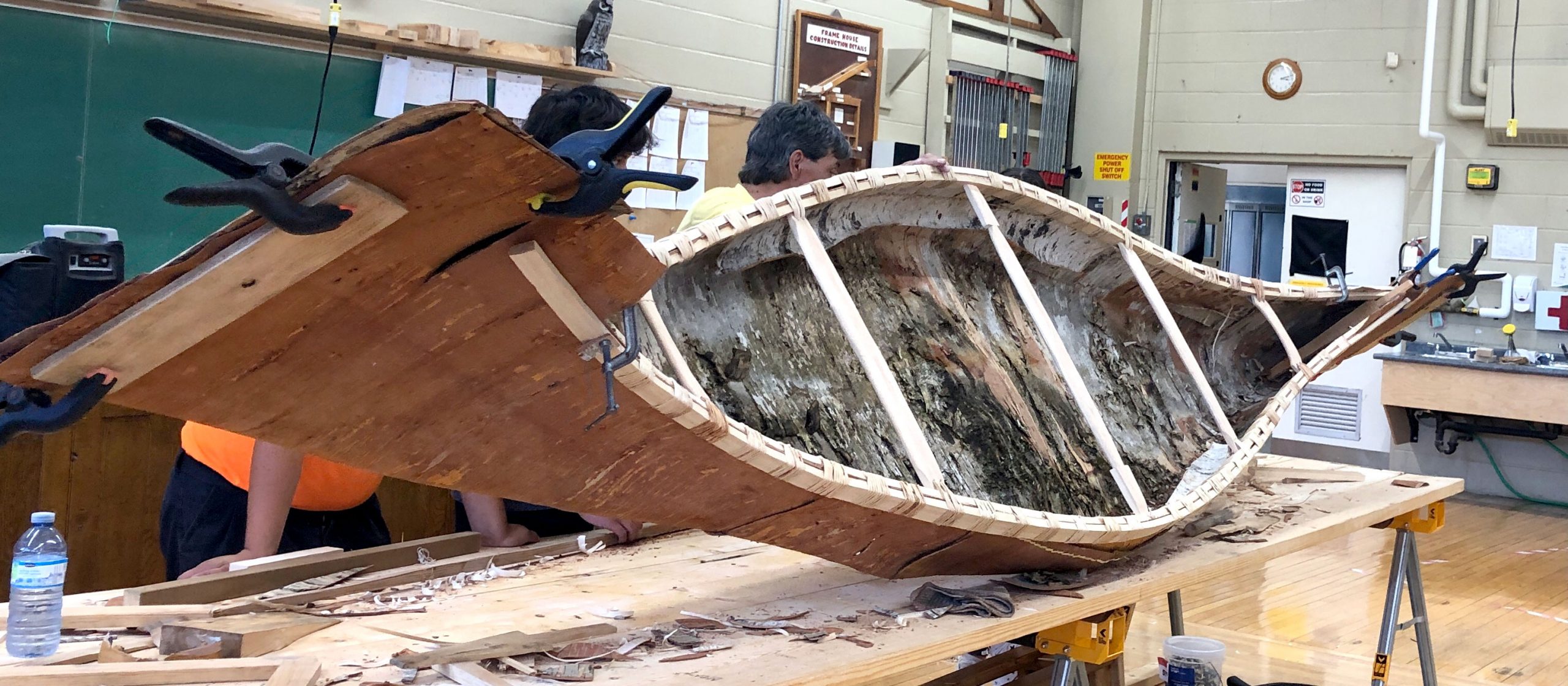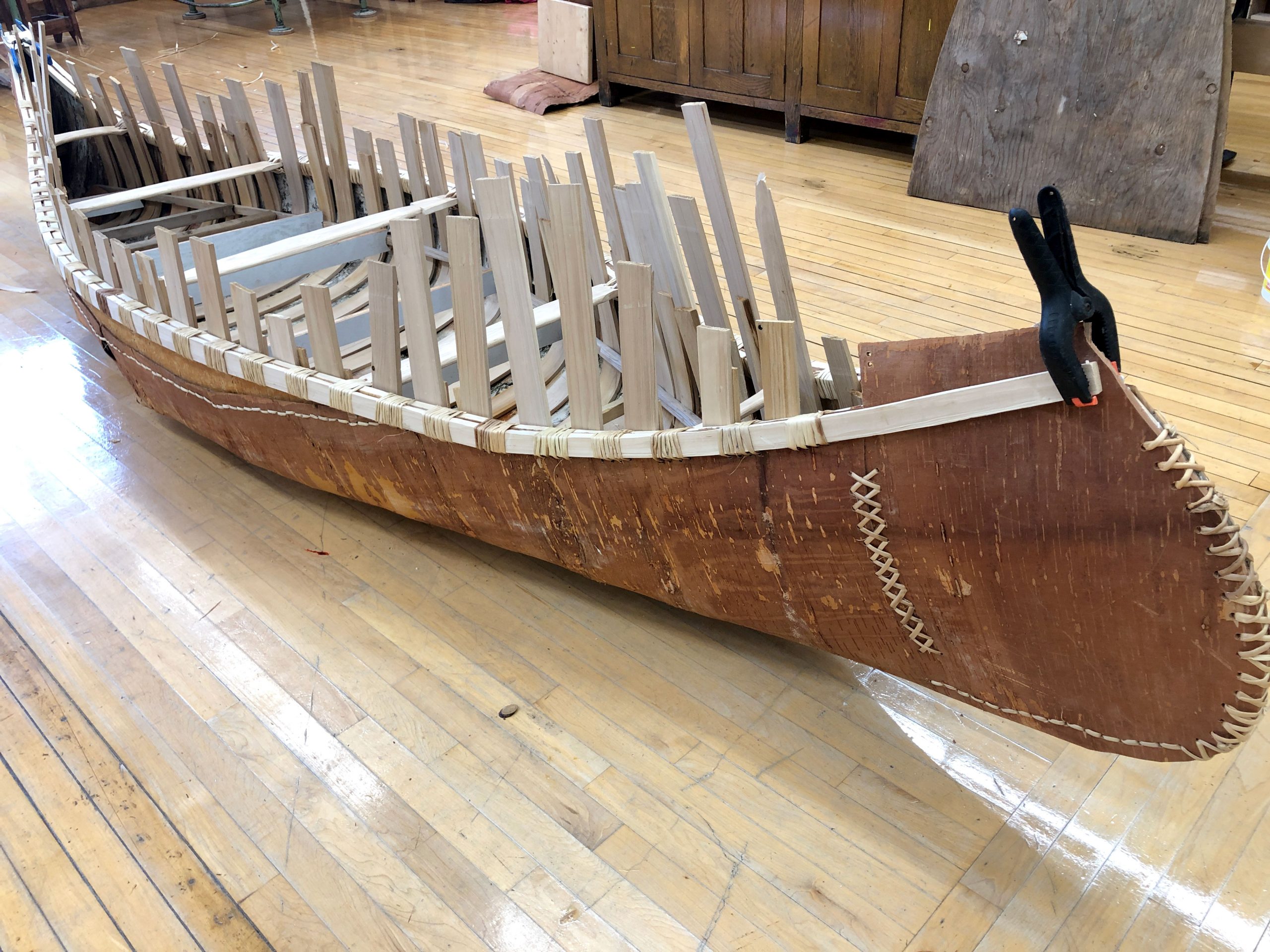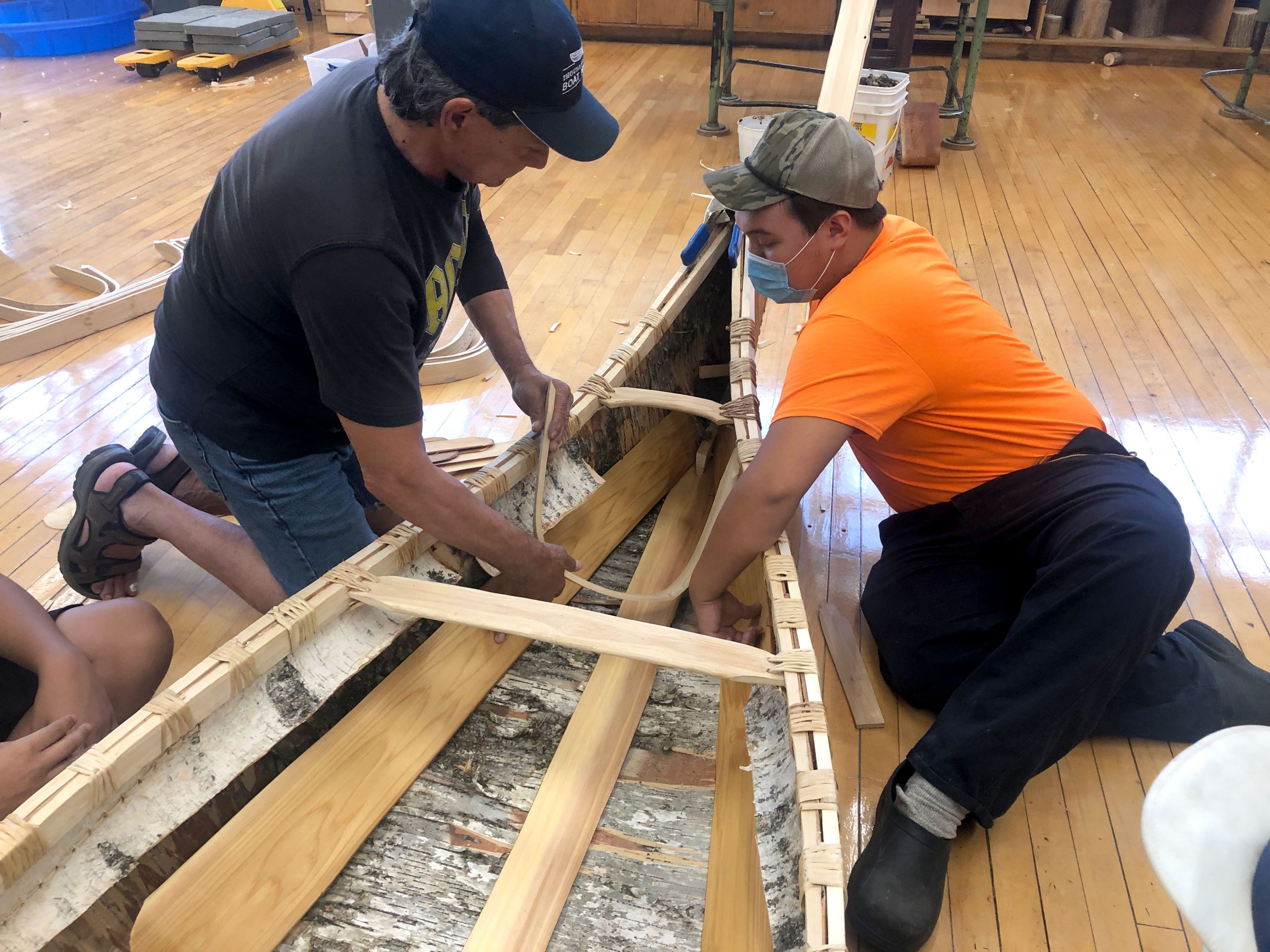GUELPH – With direction from master birch bark canoe builder Chuck Commanda, five Indigenous students in the Upper Grand District School Board (UGDSB) have come together to build a birch bark canoe using traditional practices.
UGDSB has partnered with Southwest Ontario Aboriginal Healing Centre Waterloo Wellington to bring the project to life and connect Indigenous students to their roots.
“It’s an opportunity for Indigenous youth to learn really traditional practices because there are no manufactured items on the canoe,” UGDSB lead for First Nation, Metis and Inuit education Colinda Clyne explained. “Everything is made as it would have been made hundreds of years ago.”
Five First Nations, Metis and Inuit students from the UGDSB have spent seven hours each day of the nine-day project gathering in the wood shop at John F. Ross to craft a birch bark canoe.
Using traditional Algonquin knowledge and building techniques and material, they used their hands to construct a life size birch bark canoe.

Birch bark build – Five Indigenous students in the Upper Grand District School Board have come together to build a birch bark canoe using traditional practices. Submitted photo
Clyne said students have been very engaged and they’re excited about the learning they’ve been doing.
“This is an opportunity for Indigenous students to get to know each other and create some community and this is a once in a lifetime opportunity with someone who carries the knowledge like Chuck Commanda does.”
Commanda is one of a few remaining First Nation individuals who continues the traditional craft of building birch bark canoes, encouraging and sharing his knowledge of the ancient art and skill with Indigenous youth.
“The Indian residential school system created a gap in passing along traditional knowledge. Commanda believes that his work with youth helps bridge that gap,” a UGDSB press release noted.
Students also had the opportunity to learn how to create smaller items from the left-over pieces of birch bark, like beaded earrings, miniature canoes and baskets.
The project was first conceived two years ago when the board, in collaboration with the Southwest Ontario Aboriginal Health Access Centre (SOAHAC), looked at how they might bring the youth together in a land-based learning opportunity.
Inspiration for the project came when a local Indigenous community member had the vision of bringing youth together to build a canoe. Due to the pandemic, the project was postponed until this summer.

Knowledge is goal
Clyne explained the end goal of the project isn’t necessarily the canoe itself, but the knowledge that it brings to the students who participated and their peers.
“What I really hope is that it’s the beginning of bringing land-based learning back to Indigenous students within our area because we’re disconnected here in the area of Guelph, Orangeville and Fergus.
“We’re disconnected from those kinds of teachings and so I hope that it gets youth really excited about those opportunities,” she said, adding she hopes it brings attention to staff within the board in addition to non-Indigenous people in the community.
Clyne said she also hopes this project will be an opportunity for the community to see what reconciliation in action looks like.
“This is what it looks like when we are making opportunities for students to have that land-based learning, their traditional knowledge keepers, making sure students have access to that,” Clyne explained, emphasizing the colonial education system took traditional learning away through the implementation of residential schools and Indian day schools.
“All of that access to traditional knowledge was taken away and so now this is an opportunity for the colonial system to help bring that back.”
The birch bark canoe was expected to be completed and ready to launch along the Speed River on July 28 at 1pm.
The canoe will also be taken on a tour of the schools attended by students that participated in the project.




